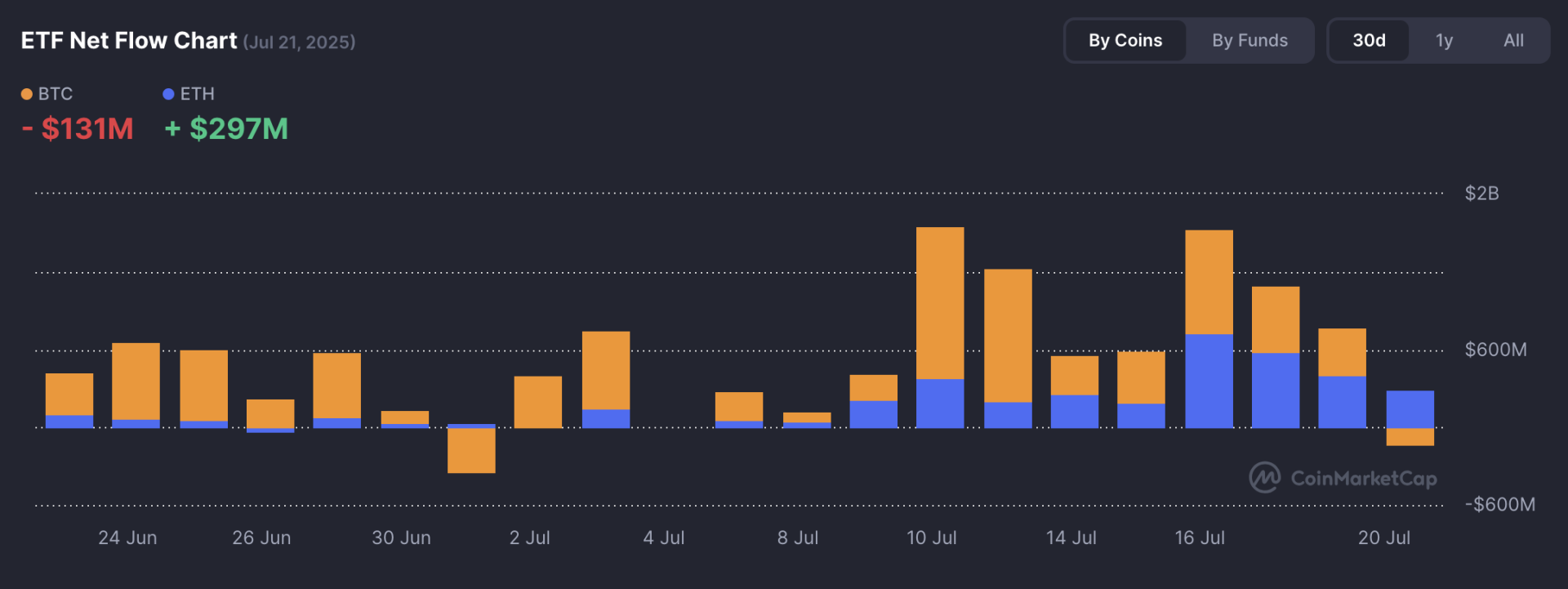What Are ETFs, and Why Do They Matter?
An ETF (Exchange-Traded Fund) is a type of investment fund traded on stock exchanges, much like stocks. It typically tracks an index, commodity, or a basket of assets, giving investors diversified exposure in a single, tradable product. ETFs have exploded in popularity over the last two decades because they’re easy to buy, relatively low cost, and transparent. Famous examples include the S&P 500 ETF (SPY) and gold ETFs (GLD).
The Push for Crypto ETFs
As cryptocurrencies like Bitcoin and Ethereum gained attention, demand grew for regulated, exchange-traded products that offer crypto exposure—without the complexity of wallets or private keys. For years, regulatory hurdles, especially in the US, kept crypto ETFs off mainstream exchanges, but 2024 marked a turning point with the approval of spot Bitcoin ETFs by the SEC.
Today, crypto ETFs exist for Bitcoin, Ethereum, and baskets of digital assets. These products have attracted billions in inflows, offering traditional investors a way to participate in the crypto market via standard brokerage accounts.
How Many Crypto ETFs Are There?
As of mid-2024, there are over two dozen crypto ETFs and ETPs globally, covering various cryptocurrencies and strategies:
Spot Bitcoin ETFs: The largest and most liquid, including the iShares Bitcoin Trust (IBIT), Fidelity Wise Origin Bitcoin Fund (FBTC), and Grayscale Bitcoin Trust (GBTC) (now converted from a trust to an ETF).
Ethereum ETFs: Approved in some jurisdictions, with the US SEC expected to allow spot Ethereum ETFs by the end of 2024.
Crypto Basket ETFs: Products tracking a selection of coins or DeFi tokens.
Futures-based ETFs: Track futures contracts rather than spot crypto.
The number is rising rapidly, with more than $60 billion in total assets across US-listed Bitcoin ETFs within months of launch.
Where to Track Crypto ETFs:
Why Choose a Crypto ETF?
For many investors, crypto ETFs are an attractive middle ground. Here’s why:
Potential Advantages
Regulated Structure: ETFs are overseen by financial regulators and audited regularly.
Easy Access: Buy and sell via any stock brokerage; no need for crypto wallets.
Liquidity: Most major ETFs have high trading volumes and tight spreads.
Tax Simplicity: Held in existing tax-advantaged accounts (IRAs, ISAs, 401(k)s).
No Self-Custody Risk: Investors avoid risks of hacks, lost keys, or exchange failures.
Potential Drawbacks
Management Fees: Most ETFs charge an annual fee (typically 0.2%–1%).
Tracking Error: ETF prices may not perfectly follow spot crypto prices, especially for futures-based products.
Limited Selection: ETFs usually only cover major coins—access to smaller or newer tokens is limited.
Market Hours: ETFs only trade during stock exchange hours, not 24/7 like crypto.
Conclusion: Are Crypto ETFs Right for You?
Crypto ETFs are rapidly becoming the preferred entry point for institutions and individuals seeking regulated, easy access to digital assets. They won’t suit everyone—especially those who want full control, direct on-chain participation, or exposure to niche tokens—but for many, they offer the best of both worlds: traditional market convenience with the upside of crypto.
As the landscape evolves, expect more products, broader coverage (including DeFi, staking, and other strategies), and growing investor interest. Always check live stats on trusted sites like Coinbase, CoinGecko, or your preferred broker before investing.
Further Reading & Resources


